With 1-800-418-4202 pop-up, real harm will befall your computer
* It could be really disturbing that 1-800-418-4202 alert keeps urging you to call the number immediately.
* Since it locks your browser up, you will find it is impossible to do a search or navigate somewhere normally.
* You will experience various abnormalities as various pop-up ads start to flood your browser webpage, which can be the beginning of exploit redirect or other web attacks.
* "Call 1-800-418-4202" scam can make things unpleasant for you because it may result in flaws or other malware threats, with which your computer will be vulnerable.
Whatever you do, do not buy the "call for tech support" saying. Or you will be required to hand in multiple hundreds of US dollars. Worse yet, the so-called technician may attempt to deceive you into granting him remote control of your system, conceivably give him the rights to install a "backdoor" to collect and steal your information, for evil purpose. That's a road you won’t enjoy traveling. If you are still in the dark and need help with scam removal, you could try the following plans.
Plan A: Remove 1-800-418-4202 pop-up Manually from Win/Mac OS
Plan A: Remove 1-800-418-4202 pop-up Manually
Step 1. End malicious processes generated by this non-sense
On Windows Computer: Press key combination (Ctrl+Alt+Del) to launch Task Manager
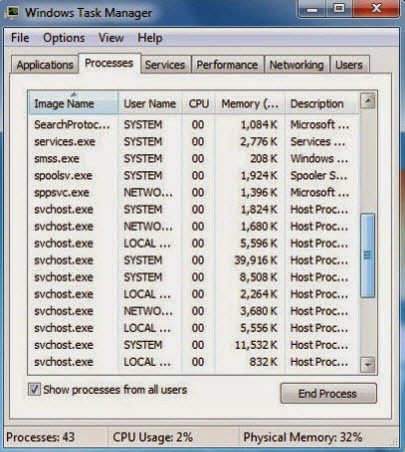
On Mac OS:
Choose Force Quit from the Apple menu, or press key combination (Command + Option + Esc) to open the Force Quit Applications window to do this.
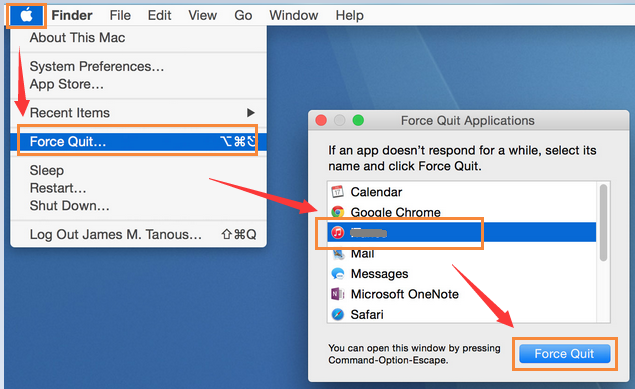
Step 2. Uninstall webpage scam related or unwanted application that bundled with this Ad
On Windows Computer:
Win 7: Go to the “Start” menu, select “Control Panel”. Locate “Programs”. If there is anything related to tech scam related program on the list of your Programs, then select it and uninstall it.
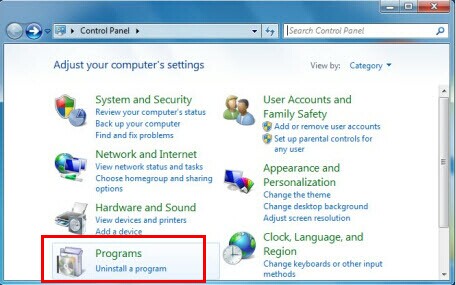
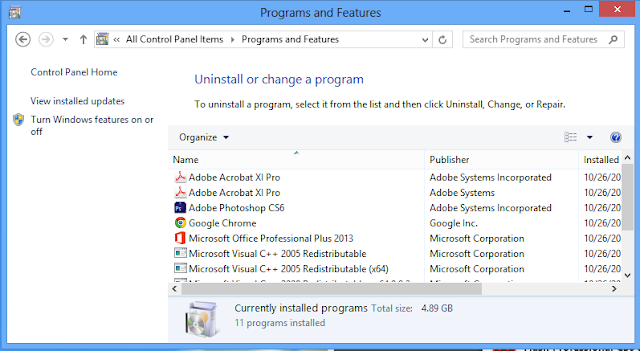
Win 10: Go to the “Start” menu, select “Settings” and then “System”; Click on “Apps & features”, if there is tech scam related item, select and uninstall it.

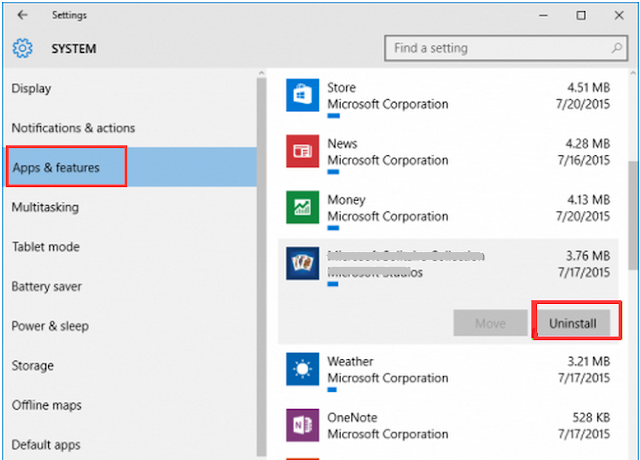
On Mac:
Open the Applications folder in the Finder (or go to the Menu Bar, open the “Go” menu, and select Applications in the list), search for Suspicious application, and then drag it to the Trash (in the dock)
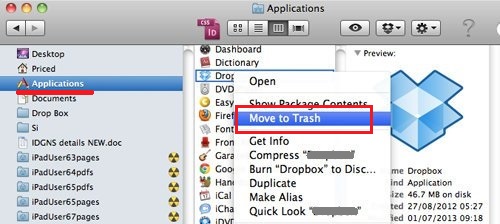
Step 3. Reset your affected browsers one by one
Google Chrome:
Click the Chrome menu on the browser toolbar and select Settings:
a) Scroll down to the bottom of chrome://settings/ page and click Show advanced settings
b) Scroll down to the bottom once again and click Reset Settings

Internet Explorer:
a) Click Start, click Run, in the opened window type "inetcpl.cpl".
b) Click "Advanced" tab, then click Reset.

Mozilla FireFox:
Open Firefox->> choose Help ->>choose Troubleshooting information
a) Click on Reset Firefox. Choose Reset Firefox again to make sure that you want to reset the browser to its initial state.
b) Click Finish button when you get the Import Complete window.
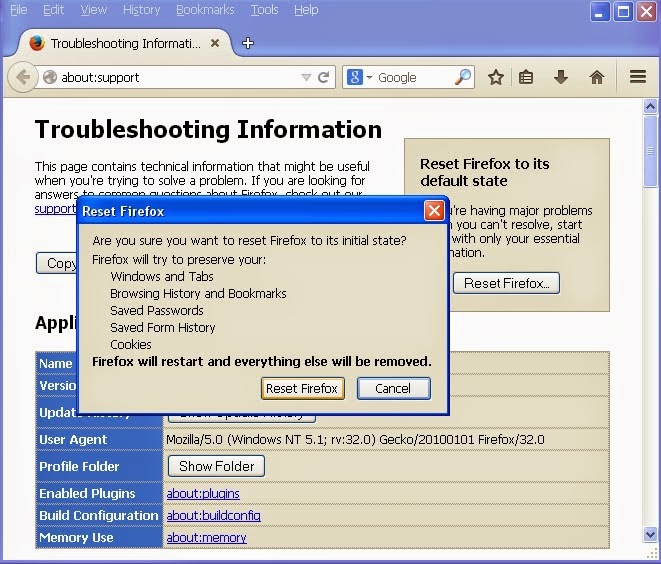
Safari
a) Open your Safari browser from the dock.
b) Click on Safari in your Safari menu at the top of your screen.
c) A drop-down menu will now appear. Choose the option labeled “Reset Safari…”
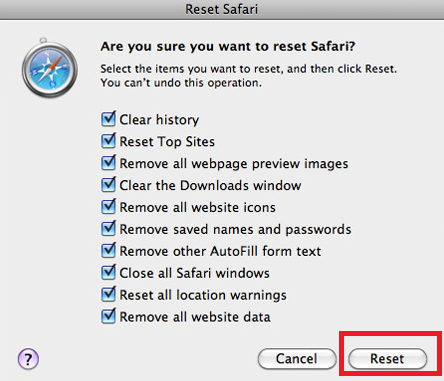
Step 4. Locate junk files and then delete them
On PC: find and delete associated files from C Drive
%ProgramData%\ %CommonProgramFiles%\*.exe %windir%\SeviceProfiles\LocalService\AppData\Local\Temp\random.tlb
On Mac: a) Access hidden Library folder by hold down the Option key while looking at the Go menu in Finder.
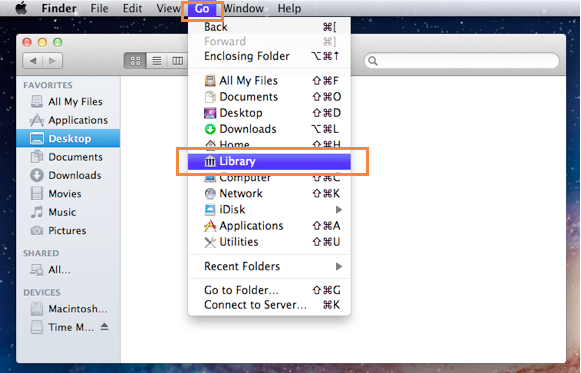
b) Delete related files. You need to check numerous system folders for obscure files such as:
/System/Library/Frameworks/v.framework /System/Library/Frameworks/VSearch.framework /Library/PrivilegedHelperTools/Jack /Library/InputManagers/CTLoader/ ~/Library/Internet Plug-Ins/TroviNPAPIPlugin.plugin /Applications/SearchProtect.app /Applications/InstallMac
(Warning: Care must be given when try this way. Don't empty your Trash until you've determined that everything is working OK, in case you need to restore something you deleted by accident. If you are not skillful enough to finish the above manual removal processes on your own, you could use a recommended malware security suite to help you out with efficiency.)
Plan B: Remove 1-800-418-4202 pop-up Automatically from Your Windows Computer
SpyHunter from Enigma Software Group LLC having been certified by West Coast Labs’ Checkmark Certification System could be a wise choice:
|
Step 1. Click the following icon to download malware removal tool SpyHunter
Step 2. Run SpyHunter to scan for this browser hijacker
Click "Start New Scan" button to scan your computer
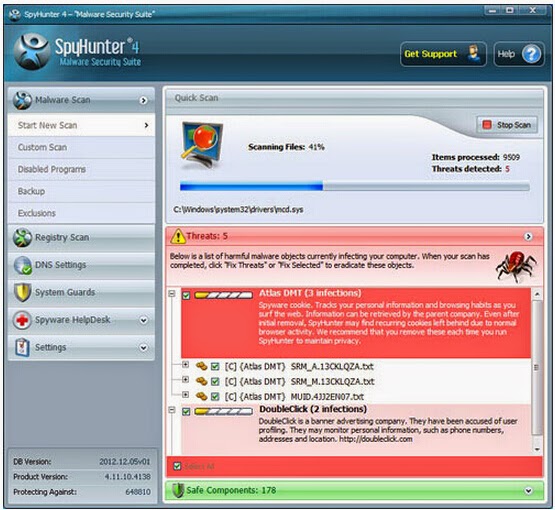
Step 3. Get rid of all detected items by clicking "Fix Threats" button
Plan C: Clean up 1-800-418-4202 pop-up Automatically from Your Mac with MacKeeper
MacKeeper has impressive features:
|
Step 1. Download MacKeeper to your Mac.
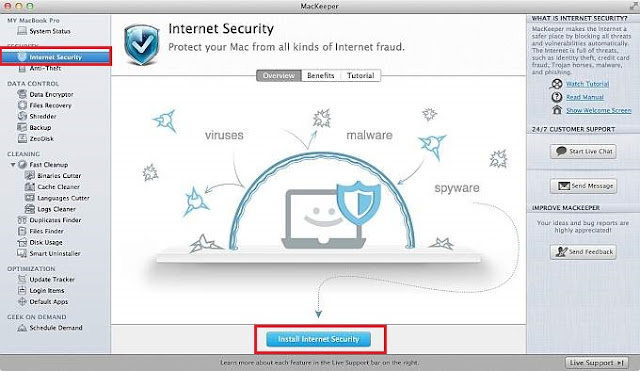
Step 3. Scan your Mac and fix the issue.
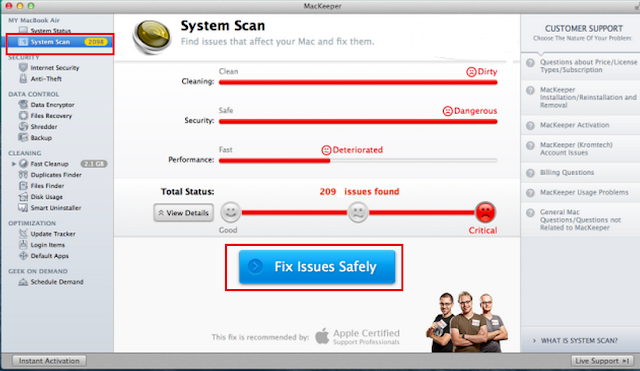
Anything taking a hand in your browsing and messing up things like 1-800-418-4202 pop-up should be eliminated in a timely fashion. If you are puzzled by the manual removal steps, you could feel free to get assistance with SpyHunter (For Win OS) or MacKeeper (For Mac).
(The recommended free scanner is only for malware detection. If it detects the target on your computer, you could think about buying the product and activating the automatic removal function to get rid of the target efficiently!)



No comments:
Post a Comment